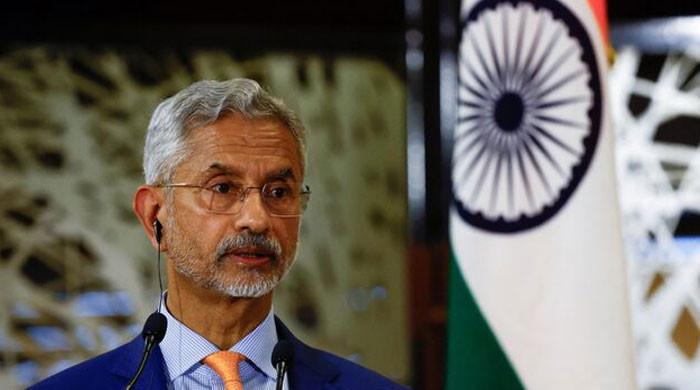IRS scam center in India was raking 150,000 dollars per day
The world became aware of a major scam operating out of Mumbai with over 700 employees targeting American citizens posing as officials from the United States Inland Revenue Service. The...
October 07, 2016

The world became aware of a major scam operating out of Mumbai with over 700 employees targeting American citizens posing as officials from the United States Inland Revenue Service. The call-center it has been revealed was earning approximately US$ 150,000 per day.
According to local media reports initial investigations have revealed the scam operation in Mumbai, India scammed over $36 million from over 6,500 unsuspecting American citizens.
The size of the Indian operation can be gauged by the share of reported scams that have been notified to the US Tax Administration, according to which over the last three years such scams have totaled over $47 million which attributes over 76 percent of the scams to just the Indian scam operation alone.
The operation raises the question how such a massive operation was operating in Indian without any knowledge of the Indian authorities. Speaking to the media after the raid, Police Chief Param Bir Singh, said the scammers “would call people and say that if they didn't pay then the cops would come and raid their house in half an hour."
The Scam
A transcript of one such call reported by the Wall Street Journal shows the brutality of the modus operandi.
"Your 401(k) [retirement] plan will be frozen and confiscated, all your wages and benefits would be frozen," one script went, according to a phone recording released by police.
"Your passport will be seized along with your state ID and if you belong to a country other than the United States then you will be deported...your Social Security number will be blocked for the next seven years and you will not be eligible for any benefits such as disability benefits, unemployment benefits, child-protection income or retirement or pension."
For any law innocent abiding American the threat of losing all of the above and jail time resulted in many victims paying as much as $60,000 to the scammers.
Each individual scam began with an automated sounding message supposedly from the IRS, with multiple variants of the phone call being used. Besides the audio sample above, another version of the recording informed the victim “that [the] nature behind this voicemail is to make you aware that we [the IRS] have received a legal petition notice against your name, concerning tax evasion, a tax fraud for the petition that is about to be filed in the federal court house, now before we go ahead and file the petition in the court house or before they issue a warrant for your arrest, if you need any further details concerning the case you can call us back on our call back number which is [reads out a seemingly US phone number].
Indian investigators say the success rate of the scam operation was approximately 2 out of every 100 calls made, which going by the $150,000 (or INR 15,000,000) in daily earnings was still nothing short of a jackpot every night.
According to information available the operation was facilitated by the owner of the companies himself based in the United States who would pass on stolen information to the operation in Mumbai enabling the callers to scam potential targets out of their savings.
Police in Mumbai arrested Nasreen Bano Isbal Bale sahib and two sons Nadeem Isbal and Shain Iqbal who own the company MAC Outsourcing Services Private Limited which managed one of the floors in the 7-storie building, while police is still trying to nab the individuals operating the other floors to investigate their involvement in the scam operation.
The Scammers, victims themselves
In all such scam operations the individuals making the actual calls too are scammed into believing they are not doing anything illegal. Assurances coupled with above market salaries usually prove enough for cash strapped employees not to question any red flags.
Recruits were told by the owners that they only had to collect outstanding amounts. They were told the company had secured a contract with the US government and was working in partnership with them.
Employees were then given lists of individuals to call in the United States, who were given only hours to make payments or face jail time and fines as high as $100,000.
The Red Flags
Many employees, fresh out of college or still studying, some who are now behind bars, did suspect that the company was not legit. Specially since over 95 percent of the individuals they called slammed the phone on them after first hurling a string of expletives.
One individual even claimed that he was planning on quitting the too-good-to-be-true job which offered top salaries, timely paychecks, promises of bonuses and regular days off. The prerequisite was a good command over the English language, with the final take home being larger depending on how good the command over the language was.
The ‘closers’ a term used for employees who sometimes were able to keep their victims – often elderly retired Americans – on the phone for hours and even threatened immediate incarceration if the victim dared to hang up.
The Payout
For every dollar earned by the scam operation the employee would earn one rupee or approximately 1.5 cent. With individual payouts directly proportionate to the haul, employees sometimes walked away with as much as 65,000 Indian Rupees ($1,000) after just one call, in cash.
The Warning
The IRS saw an approximate 400 percent surge in phishing and malware incidents in the 2016 tax season.
The Internal Revenue Service (IRS) on its website warns Americans about such telephone scams and have been doing so for years. On the IRS website it states clearly that, “an aggressive and sophisticated phone scam targeting taxpayers, including recent immigrants, has been making the rounds throughout the country. Callers claim to be employees of the IRS, but are not. These con artists can sound convincing when they call. They use fake names and bogus IRS identification badge numbers. They may know a lot about their targets, and they usually alter the caller ID to make it look like the IRS is calling.
Victims are told they owe money to the IRS and it must be paid promptly through a pre-loaded debit card or wire transfer. If the victim refuses to cooperate, they are then threatened with arrest, deportation or suspension of a business or driver’s license. In many cases, the caller becomes hostile and insulting. Or, victims may be told they have a refund due to try to trick them into sharing private information. If the phone isn't answered, the scammers often leave an “urgent” callback request.”
The IRS goes ahead to make it clear that the Inland Revenue Service “will never call to demand immediate payment using a specific payment method such as a prepaid debit card, gift card or wire transfer. Generally, the IRS will first mail you a bill if you owe any taxes.”
It goes on to clarify, that the IRS will not “threaten to immediately bring in local police or other law-enforcement groups to have you arrested for not paying.”
Further adding, the IRS will not “ask for credit or debit card numbers over the phone.”
The Indian Connection
While data shows only two percent targets become victims, the amounts scammed run into millions. Some of the 98-percent who were wise to the scam have recorded and shared recording of the scam calls dating back many years, confirming the Indian connection goes back many years.
CNN Money reported in March 2015, where victims were scammed out of $15 million over a period that started in 2013 from over 3,000 American victims. It reported the Treasury Department documented over 366,000 reports of contacts from scammers in that period with over 10,000 complaints being recorded each week.
According to CNN even in 2015 authorities believed that the scam was being operated out of India.
Americans troll the scammers
Majority of the victims are non tech savvy Americans, but of the 98-percent targets that did not become victims, some have taken time out to hit back at the Indian scammers by calling on the ‘call back number’ and trolling them, sometimes for hours.
A quick search on any search engine will lead to hundreds of such calls posted by Americans that became wise to the scam.
Ovais Jafar is a Multimedia Journalist, he tweets as @ovaisjafar











